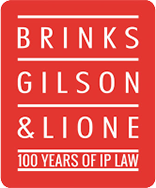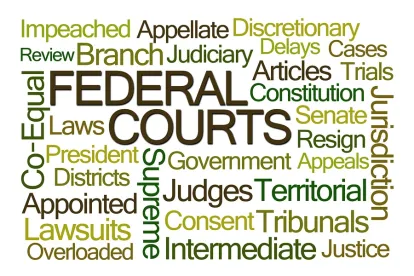On January 8, 2018, the Federal Circuit issued an en banc decision in Wi-Fi One, LLC v. Broadcom Corp., No. 2015-1944, holding that parties may now appeal PTAB time-bar determinations at the Federal Circuit. At issue was “whether the bar on judicial review of institution decisions in § 314(d) applies to time-bar determinations under § 315(b).”
Background
35 U.S.C. § 315(b) provides that “[a]n inter partes review may not be instituted if the petition requesting the proceeding is filed more than 1 year after the date on which the petitioner, real party in interest, or privy of the petitioner is served with a complaint alleging infringement of the patent.”
35 U.S.C. § 314(d) states “[t]he determination by the Director whether to institute an inter partes review under this section shall be final and nonappealable.”
In 2015, the Federal Circuit held that § 314(d) precludes appellate review of a PTAB’s determination of whether an IPR petition was untimely under § 315(b). See Achates Reference Publ’g, Inc. v. Apple Inc., 803 F.3d 652 (Fed. Cir. 2015).
In 2016, the Supreme Court held that § 314(d) bars judicial review of a PTAB’s determination of whether an IPR petition complies with § 312(a)(3), which in turn requires that the petition identify with sufficient particularity “each claim challenged, the grounds on which the challenge to each claim is based, and the evidence that supports the grounds for the challenge to each claim.” See CuozzoSpeed Techs., LLC v. Lee, 136 S. Ct. 2131, 2150 (2016). However, the Supreme Court expressly declined to “decide the precise effect of § 314(d) on appeals that implicate constitutional questions, that depend on other less closely related statutes, or that present other questions of interpretation that reach, in terms of scope and impact, well beyond ‘this section.’” Id. at 2141 (emphasis added).
Subsequent to Cuozzo, the Federal Circuit affirmed a PTAB panel’s determination that an IPR petition was not untimely under § 315(b). The Federal Circuit reasoned that Achates rendered the PTAB’s time-bar ruling nonappealable, and that Cuozzo did not implicitly overrule Achates. See Wi-Fi One, LLC v. Broadcom Corp., 837 F.3d 1329, 1333-35 (Fed. Cir. 2016).
Wi-Fi filed a petition for rehearing en banc. In granting Wi-Fi’s petition, the Federal Circuit identified the following question:
Should this court overrule [Achates] and hold that judicial review is available for a patent owner to challenge the PTO’s determination that the petitioner satisfied the timeliness requirement of 35 U.S.C. § 315(b) governing the filing of petitions for inter partes review? See Wi-Fi One, LLC v. Broadcom Corp., 851 F.3d 1241, 1241 (Fed. Cir. 2017).
Holding
The majority of the Federal Circuit, sitting en banc, held that PTAB time-bar determinations are now appealable. The starting point for the majority opinion was the “strong presumption in favor of judicial review of agency actions.” Wi-Fi One, LLC v. Broadcom Corp., No. 2015-1944, 2018 U.S. App. LEXIS 387, at *5 (Fed. Cir. Jan. 8, 2018). The majority then explained that there is “no clear and convincing indication in the specific statutory language in the AIA, the specific legislative history of the AIA, or the statutory scheme as a whole that demonstrates Congress’s intent to bar judicial review of § 315(b) time-bar determinations.” Id. at *15.
Takeaways
The Federal Circuit has effectively overruled Achates. However, the majority limited its opinion to only time-bar determinations under § 315(b) – carefully noting how Wi-Fi One does not address “whether all disputes arising from §§ 311-14 are final and nonappealable.” Id. at *22. Several judges dissented because they concluded that the majority’s “narrow reading” of § 314(d) was “contrary to the Supreme Court’s construction” in Cuozzo as well as the statute’s plain language. Id. at *29 (Hughes, J., dissenting). It will be interesting to see if a petition for certiorari is filed and taken up by the Supreme Court. At least for now, however, Wi-Fi One remains important for patent owners and petitioners who wish to appeal an adverse PTAB decision on the timeliness of the petition under § 315(b).





 />i
/>i

